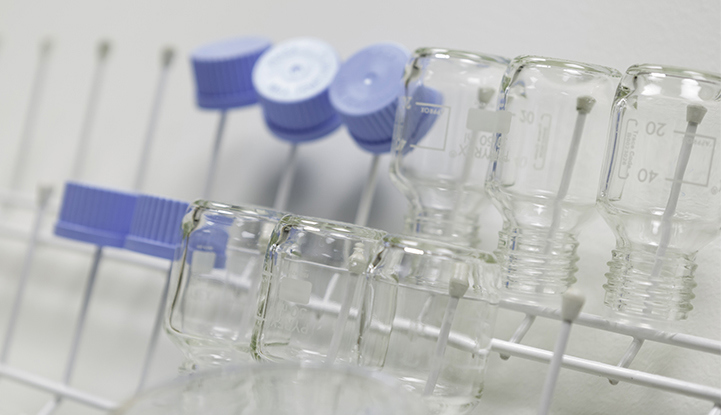Biotechnology Lab
Biotechnology
Biotechnology is a collective name for different technologies that use organisms to perform different processes. Biotechnology includes processes such as fermentation for the production of insulin (for diabetics) and antibiotics. The processes can mainly be divided into two groups: mixed cultures and pure cultures.
Attempts are being made continuously with mixed cultures and pure cultures to produce new products from different by-products and waste material. Because we work with by-products and waste material, it almost always means that new methods need to be used to make the microorganisms thrive. This may be due to the fact that the raw material contains substances that are toxic to the microorganisms or that the raw material is difficult for the microorganisms to break down. This results in the raw materials usually having to be pre-treated, either to make it less toxic or to make it easier to break down.
Mixed cultures and pure cultures
In mixed cultures, several different species of microorganisms grow simultaneously, where they both help and compete with each other. Often, one does not know exactly what the different species are, rather just what types they are. An example of a mixed culture is sourdough in which different types of lactic acid bacteria and yeast grow. In pure cultures, one species is used, which is added in and then grows.
New types of bioreactors are also being developed. This applies to both simple types of bioreactors that should be cheap enough to be used in developing countries and high technology that can be used in demanding applications. For example, a membrane bioreactor is being developed in which the membranes have such a small pore size that microorganisms cannot pass through.
The research is conducted with other groups in Resource Recovery, research groups in other countries, and in collaboration with several companies.
The Biotechnology Lab is used by students in the programme of Chemical Engineering--Applied biotechnology, on Master's programmes in Resource Recovery, PhD students in Resource Recovery, and exchange Students from all corners of the world.
Bioreactor
A reactor is a vessel in which one or more reactions occur. A bioreactor is a vessel in which biological reactions occur. For example, a proofing basket where bread rises is a very simple type of bioreactor. The main task of the bioreactor is to provide the right conditions for the microorganisms used to perform the desired processes. Typically, this includes having control of pH, temperature, mixing, and oxygen availability.
Resources in the Biotechnology Lab
- Autoclave
- High Resolution Liquid Chromatography (HPLC)
- Gas Chromatograph (GC)
- Grinder
- Centrifuge
- Freeze dryer
- Bioreactors in lab size of various designs
- Solid phase reactor for biogas production
- Airlift reactors in pilot scale
- Automatic gas flow meter
- Rotary Evaporators
- Oil bath
- Quantitative PCR (qPCR)
- Fluorescence microscope



